David Honzátko
Leveraging Spatial and Photometric Context for Calibrated Non-Lambertian Photometric Stereo
Mar 22, 2021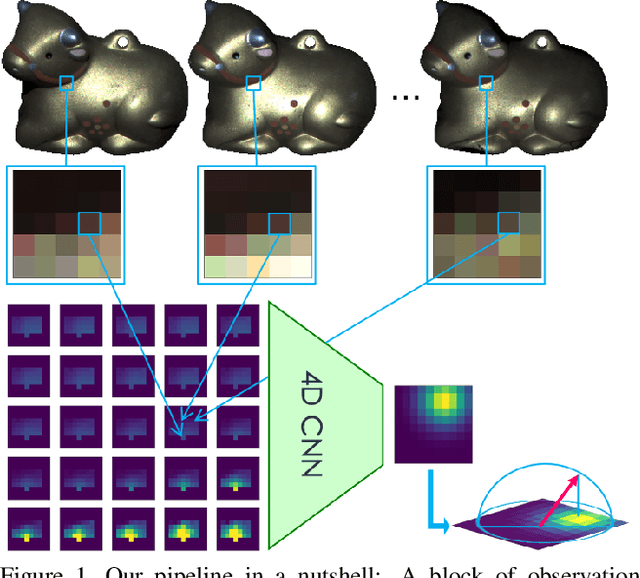

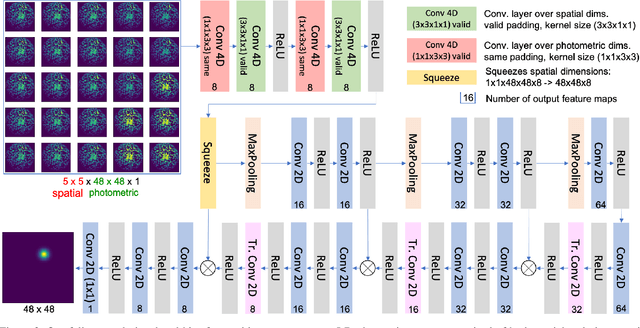
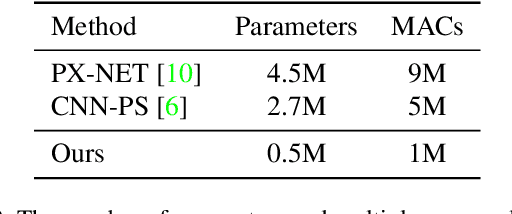
Abstract:The problem of estimating a surface shape from its observed reflectance properties still remains a challenging task in computer vision. The presence of global illumination effects such as inter-reflections or cast shadows makes the task particularly difficult for non-convex real-world surfaces. State-of-the-art methods for calibrated photometric stereo address these issues using convolutional neural networks (CNNs) that primarily aim to capture either the spatial context among adjacent pixels or the photometric one formed by illuminating a sample from adjacent directions. In this paper, we bridge these two objectives and introduce an efficient fully-convolutional architecture that can leverage both spatial and photometric context simultaneously. In contrast to existing approaches that rely on standard 2D CNNs and regress directly to surface normals, we argue that using separable 4D convolutions and regressing to 2D Gaussian heat-maps severely reduces the size of the network and makes inference more efficient. Our experimental results on a real-world photometric stereo benchmark show that the proposed approach outperforms the existing methods both in efficiency and accuracy.
Efficient Blind-Spot Neural Network Architecture for Image Denoising
Aug 25, 2020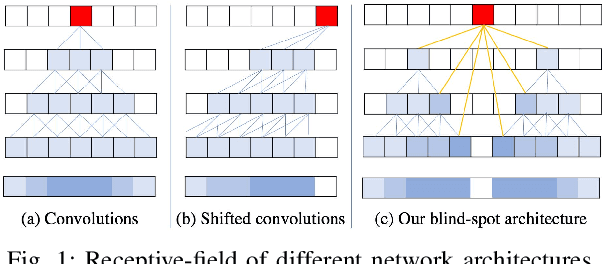
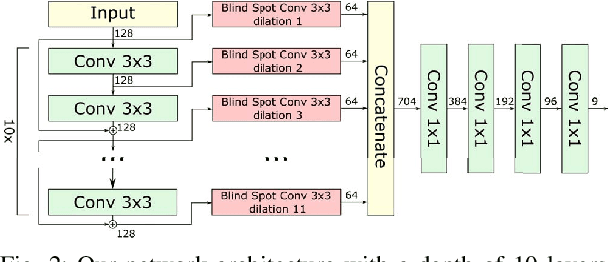
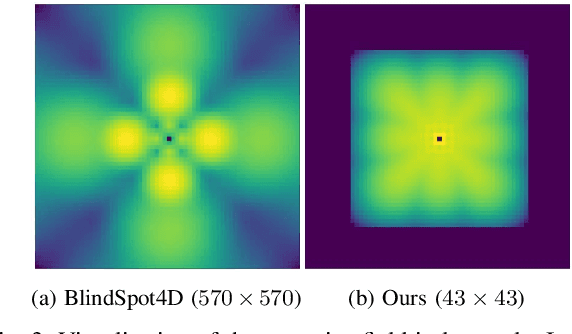
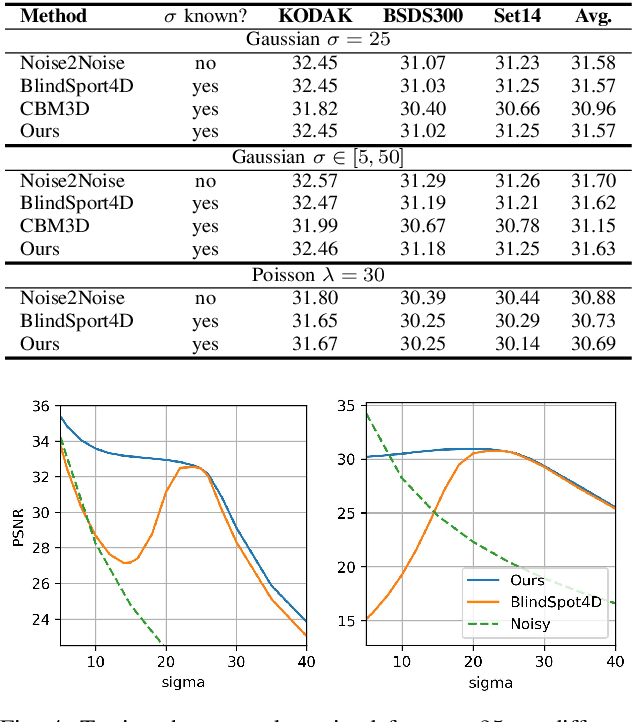
Abstract:Image denoising is an essential tool in computational photography. Standard denoising techniques, which use deep neural networks at their core, require pairs of clean and noisy images for its training. If we do not possess the clean samples, we can use blind-spot neural network architectures, which estimate the pixel value based on the neighbouring pixels only. These networks thus allow training on noisy images directly, as they by-design avoid trivial solutions. Nowadays, the blind-spot is mostly achieved using shifted convolutions or serialization. We propose a novel fully convolutional network architecture that uses dilations to achieve the blind-spot property. Our network improves the performance over the prior work and achieves state-of-the-art results on established datasets.
Image Restoration using Plug-and-Play CNN MAP Denoisers
Dec 20, 2019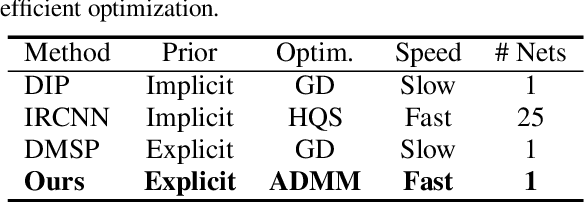
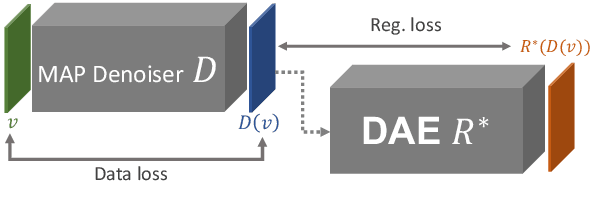


Abstract:Plug-and-play denoisers can be used to perform generic image restoration tasks independent of the degradation type. These methods build on the fact that the Maximum a Posteriori (MAP) optimization can be solved using smaller sub-problems, including a MAP denoising optimization. We present the first end-to-end approach to MAP estimation for image denoising using deep neural networks. We show that our method is guaranteed to minimize the MAP denoising objective, which is then used in an optimization algorithm for generic image restoration. We provide theoretical analysis of our approach and show the quantitative performance of our method in several experiments. Our experimental results show that the proposed method can achieve 70x faster performance compared to the state-of-the-art, while maintaining the theoretical perspective of MAP.
 Add to Chrome
Add to Chrome Add to Firefox
Add to Firefox Add to Edge
Add to Edge